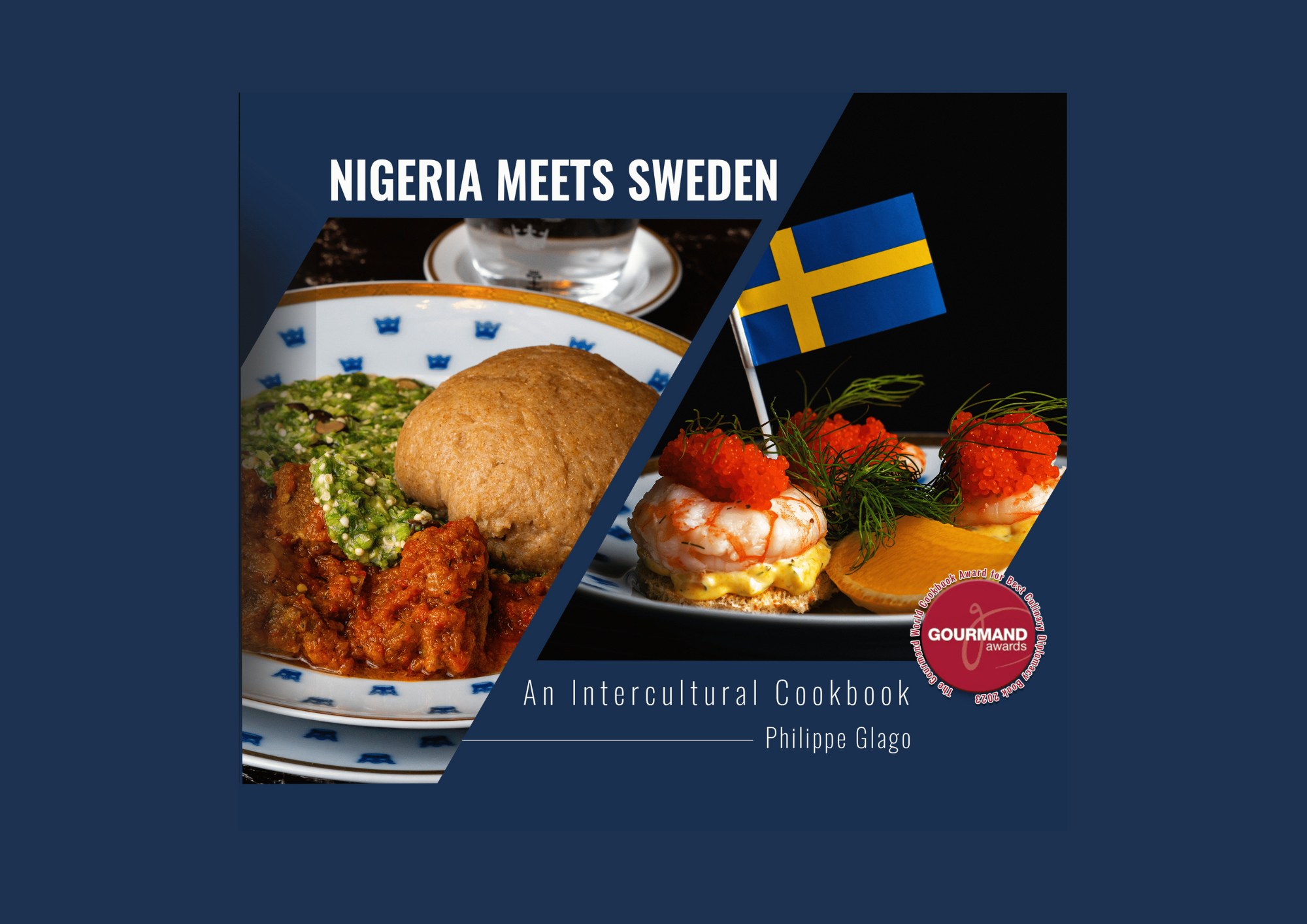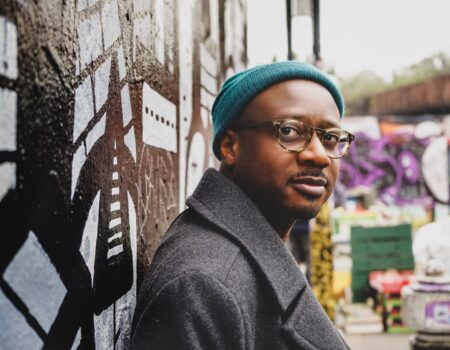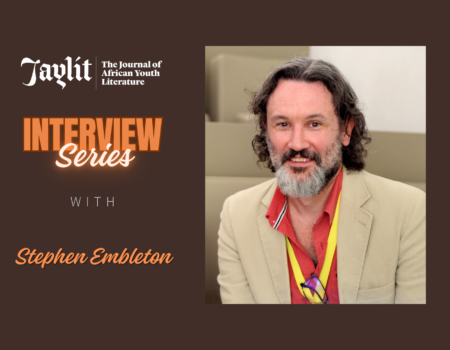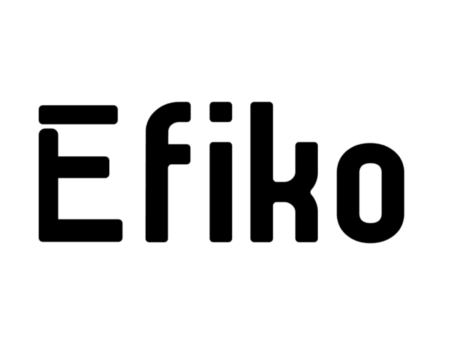One of the most poetic things to a regular person’s ear, especially to the culinary curious or the hungry, is the mention of good food. Food has long served as a bridge between cultures and a key diplomatic tool used by individuals, communities, and nations. In this spirit comes the well-prepared and excellently published cookbook, Nigeria Meets Sweden: An Intercultural Cookbook, a project of the Swedish Embassy in Nigeria, authored by Philippe Glago, the distinguished chef at the Swedish Ambassador’s Residence in Nigeria. The book is published by the internationally renowned SEVHAGE, known for its cultural advocacy, particularly through projects like the Benue Book and Arts Festival and the In-Conversation Series with cultural icons, among others. The publishing page also features an impressive cast of behind-the-scenes editorial support, led by a team comprising the Embassy itself and the publishing house, with multiple award-winning writer and literary administrator, S. Su’eddie Vershima Agema at the helm.
One is met with a captivating cover designed in Sweden’s official colours of blue and yellow, adorned with mouth-watering dishes that immediately communicate the essence of good food. The Naija and Swedish signature meals leap from the cover, making a bold statement. There is also an emblem marking the book’s distinction as the Winner, Gourmand World Cookbook Award for Best Culinary Diplomacy Book 2023, an honour it received in a well-regarded international competition in Riyadh in 2023. The 2024 edition opens with a distinctly unique print in Sweden Sans fonts, a departure from the font choice in the 2022 edition, which was itself published to great acclaim.
This cookbook curates an experience that fuses the culinary traditions of two distinct yet rich cultures across two continents—Africa and Europe. At its core, Nigeria Meets Sweden is an intersection of culinary histories. Nigerian cuisine, known for its bold spices, hearty stews, and intricate use of indigenous ingredients, meets the refined, often minimalist yet flavour-rich approach of Swedish gastronomy. Dishes such as ‘Naija Beef Stew with Okra and Semo’ sit alongside ‘Toast Skagen’, as seen on the cover, providing both a visual and metaphorical representation of how food can be a cultural handshake. The book goes further by suggesting a Swaija variation—a fusion of similar ingredients sourced locally to complement those of the counterpart. As Ambassador H.E. Annika Hahn-Englund puts it: “Out comes a distinct flavour of both Sweden and Nigeria!” And in doing this, she notes, one might just be sprinkling the wisdom found in Ms Cajsa Warg’s famous 1755 Swedish cookbook, Hjelpreda i Hushållningen för Unga Fruentimber, which popularised the phrase, “Man tager vad man haver” (one takes what one has).
This concept of fusion cooking becomes a fine blend of two nations that, on the surface, have little in common gastronomically, yet find common ground in their appreciation of fresh, local ingredients and time-honoured preparation methods.
Glago’s approach to writing is both practical and inviting. The book reads as both a manual for food preparation and a mentor’s guide that holds the hand of the reader, whether seasoned or apprentice, offering instructions in a way that is easy to follow while still preserving the authenticity of both cuisines. Each recipe is well-structured, providing clear ingredient lists, procedural steps, and, where needed, cultural context. The narrative is warm, making even the most elaborate dishes feel accessible. One gets the idea that no food in the book is too hard to try.
The photography, expertly handled by Kim Dashong and shot at the Ambassador’s residence, enhances the reading experience, with mouth-watering images that showcase the aesthetic beauty of the dishes. This visual storytelling follows best practices in most cookbooks and is evident in works such as the award-winning Ottolenghi: The Cookbook by Yotam Ottolenghi and Sami Tamimi, which similarly emphasises vibrant photography to complement the textual content.
As noted already, the major thrust of this book is in its role as a tool for cultural diplomacy. The inclusion of an introduction/foreword by the Swedish Ambassador to Nigeria underscores the significance of food in fostering international relations. While the 2024 version is by H. E. Annika Hahn-Englund, the 2022 version was written by the then Ambassador, H.E. Carl Michael Gräns. The pictures of these diplomats in both versions of the book also gives a stamp of authority and invitation by them, almost as if they are inviting the reader into their warm residence in Asokoro, Abuja, and by extension, to their Nordic homeland. The project mirrors similar initiatives such as The Gaza Kitchen by Laila El-Haddad and Maggie Schmitt, which uses Palestinian cuisine to tell stories of resilience and culture.
Nigeria Meets Sweden documents the meeting point between African and European culinary traditions, creating something that is not just unique but also essential in an increasingly interconnected world. The book’s success, underscored by its Gourmand World Cookbook Award for Best Culinary Diplomacy Book 2023, cements its place among significant works that go beyond mere gastronomy to serve a greater cultural purpose. For African readers, it offers a fresh perspective on how local dishes can be reinterpreted and integrated into a global culinary discourse. For Swedish readers and beyond, it provides a gateway into the diverse and vibrant world of Nigerian cuisine, breaking stereotypes and expanding palates. This work is a bold and necessary step towards culinary inclusivity and cultural appreciation, a collector’s item well worth preserving.
Soji Cole
Soji Cole is a multiple award-winning author, scholar, and Assistant Professor at St Mary’s University, Halifax, Nova Scotia, Canada. He is currently rounding off a second PhD program in Interdisciplinary Humanities at Brock University, Ontario Canada. He has been a double recipient of the Diversity Studies International Teaching and Scholarship Network Fellowship, with the University of Augsburg, and Carl Von Ossietzsky University, Oldenburg in Germany. He was a recipient of a Fulbright Research Scholarship at Kansas State University, Manhattan, USA. He also received a Pre-Doctoral Fellowship in Black Studies at Queens University, Ontario, Canada. He was a Guest Research Scholar at the Center for Research and Creative Exchange, University of Roehampton, UK. Amongst other prizes, he has won the [NLNG] Nigeria Prize for Literature; the Association of Nigerian Authors (ANA) Playwriting Prize; A winner of the International Federation for Theatre Research (IFTR/FIRT) New Scholars Prize, as well as a winner of the African Theatre Association (AfTA) Emerging Scholars Prize.





